To commemorate these important events, we hope to portray the portraits of prominent writers who have left important marks on contemporary literature.
Writer Nguyen Dinh Thi. Photo: Document
In the hearts of many people, whenever they think of Hanoi , they cannot forget the song: Here is Hoan Kiem Lake, Hong Ha West Lake/ Here the souls of the thousand-year-old mountains and rivers settle/ Here is Thang Long, here is Dong Do/ Here is Hanoi/ Beloved Hanoi/ Hanoi is on fire, smoke and fire fill the sky/ Hanoi rumbles and shakes, Hanoi stands up/ The Red River sings, Hanoi stands up/ How beautiful is Hanoi!/ Oh, the blue water of Hoan Kiem Lake is so deep in the heart/ The shadow of the Turtle Tower is so intimate and warms the heart... This is the song " Hanoi People" composed by writer - musician Nguyen Dinh Thi in 1947, in the early days of the resistance war against the French in Hanoi. At that time, he was a reporter for the Cuu Quoc newspaper and witnessed the indomitable spirit of the capital's people "determined to die for the Fatherland, determined to live" on every street.
Nguyen Dinh Thi (1924 - 2003) was a great poet, writer, musician and cultural activist of Vietnam. With his diverse talents and tireless dedication, he is one of the most representative faces of Vietnam's revolutionary literature and art in the 20th century.
Nguyen Dinh Thi joined revolutionary activities at the age of 17, composing continuously during the resistance wars against France and the US. His works are always associated with current events and revolutionary ideals, but still retain a profound lyrical quality.
Saying goodbye to the capital on the way to the resistance war, his poem "Country" touched thousands of hearts: The morning was cool and clear like the mornings of old / The autumn wind blew the scent of new rice / I remember the distant autumn days / The morning was starting to get cold in the heart of Hanoi / The long streets were rustling with the cool breeze / The person leaving did not look back / Behind the sunny porch, leaves were falling all over.
The poem not only depicts the beauty of the country through familiar images but also highlights the resilient, indomitable spirit of our people: The blue sky is ours/ The mountains and forests are ours/ The fragrant fields/ The immense roads/ The red rivers heavy with alluvium/ Our country/ The country of people who have never been defeated/ Every night murmurs in the sound of the earth/ The old days echo back/ Oh, the bleeding fields of the countryside/ Barbed wire tears the afternoon sky/ Your chains cannot lock it/ The sky is full of birds and the earth is full of flowers/ Your guns and bullets cannot shoot it/ Our people love their country and their home...
The Country is a lyrical epic about the Fatherland, where the past and present blend together, where love, pain and ideals are distilled into emotional words. Nguyen Dinh Thi has left his own mark in revolutionary poetry with his passionate yet heroic voice, with his beautiful yet realistic images, with the soul of a poet with the heart of a soldier.
REPRESENTATIVE FACES OF MODERN VIETNAMESE CULTURE
Nguyen Dinh Thi was born in 1924 in Luang Prabang (Laos); his hometown is in Vu Thach village, now Ba Trieu street, Hanoi; he was a founding member of the Vietnam Writers Association in 1957, a member of the Communist Party of Vietnam. He died on April 18, 2003 in Hanoi.
Exhibition booth about poet Nguyen Dinh Thi at the Vietnam Literature Museum. Photo: Vietnam Literature Museum
As a child, he lived in Laos, from 1931 he returned to Vietnam and went to school in Hanoi, Hai Phong , and was active in revolutionary activities from 1941. From 1943, he joined the National Salvation Culture Association (in charge of the Independence newspaper ), was a delegate to the Tan Trao National Congress and was elected to the Vietnam National Liberation Committee. After the August Revolution (1945), he became General Secretary of the National Salvation Culture Association; during the resistance war against the French, he carried out cultural activities to serve the resistance. From 1955, he worked at the Vietnam Literature and Arts Association, General Secretary of the Literature and Arts Association (1956 - 1958). From 1958, he was General Secretary of the Vietnam Writers Association for the first, second and third terms, and Chairman of the National Committee of the Vietnam Union of Literature and Arts Associations.
In whatever role, poet, writer, or musician, Nguyen Dinh Thi left behind works of profound thought, rich in emotion, imbued with national spirit and aspiration for freedom.
The lessons he left for Vietnamese literature are that poets must live with the times, must be closely connected to the fate of the nation, must write from the heart, from the trenches, from real hardships, not from ivory towers. Great art must evoke the stature of the national spirit, arouse faith and identity. (to be continued)
Published works of Nguyen Dinh Thi
- Stories, prose: Xung Kich (novel); This Autumn and Winter (novel); On the banks of Lo River (short story collection); Broken Banks, volume 1 (novel); Into the Fire (novel); The High Front (novel); Broken Banks , volume 2 (novel, 1970); Tuyet (short story collection, 2003).
- Philosophy books: Introduction to Philosophy (1942); Kant's Philosophy (1942); Nietzsche's Philosophy (1942); Einstein's Philosophy (1942); Descartes' Philosophy (1942); Metaphysics (1942).
- Essay: Some literary issues; Some ideological struggles in literature today; The work of a novelist.
Poetry : The Country (1948 - 1955); The Soldier (1958); The Black Sea Poem (1958); The Blue River (1974); Rays of Sunlight (1985); In the Dust (1992); Roaring Waves (2001); Vietnam, My Homeland ; Remember; Red Leaves.
- Drama: The Black Deer (1961); Flowers and Ngan (1975); Dream (1983); Nguyen Trai in Dong Quan (1979); The Petrified Woman (1980); The Shadow on the Wall (1982); Truong Chi (1983); Hon Cuoi (1983 - 1987); The Sound of Waves (1985).
He was awarded the first Ho Chi Minh Prize for Literature and Arts in 1996.
Source: https://thanhnien.vn/nguyen-dinh-thi-nha-van-gan-bo-voi-van-menh-dan-toc-185250819000438593.htm




![[Photo] General Secretary To Lam receives US Ambassador to Vietnam Marc Knapper](https://vphoto.vietnam.vn/thumb/1200x675/vietnam/resource/IMAGE/2025/9/29/c8fd0761aa184da7814aee57d87c49b3)
![[Photo] National Assembly Chairman Tran Thanh Man chairs the 8th Conference of full-time National Assembly deputies](https://vphoto.vietnam.vn/thumb/1200x675/vietnam/resource/IMAGE/2025/9/29/2c21459bc38d44ffaacd679ab9a0477c)
![[Photo] General Secretary To Lam chairs the meeting of the Central Steering Committee on preventing and combating corruption, waste and negativity](https://vphoto.vietnam.vn/thumb/1200x675/vietnam/resource/IMAGE/2025/9/29/fb2a8712315d4213a16322588c57b975)
![[Photo] Many streets in Hanoi were flooded due to the effects of storm Bualoi](https://vphoto.vietnam.vn/thumb/1200x675/vietnam/resource/IMAGE/2025/9/29/18b658aa0fa2495c927ade4bbe0096df)

![[Photo] General Secretary To Lam attends the ceremony to celebrate the 80th anniversary of the post and telecommunications sector and the 66th anniversary of the science and technology sector.](https://vphoto.vietnam.vn/thumb/1200x675/vietnam/resource/IMAGE/2025/9/29/8e86b39b8fe44121a2b14a031f4cef46)







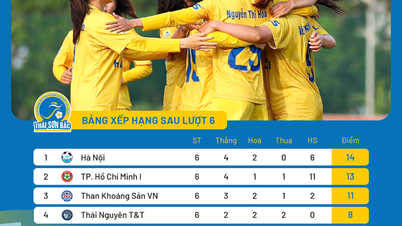



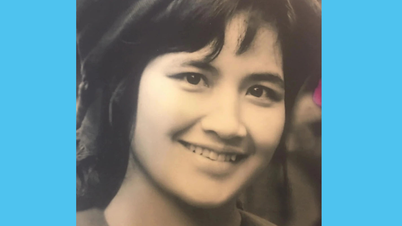





































































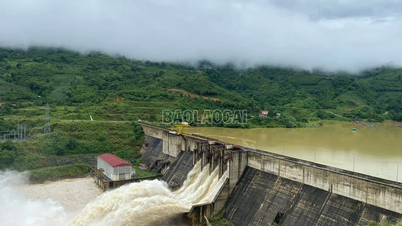


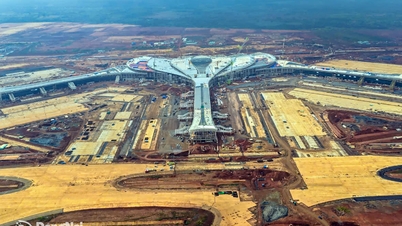












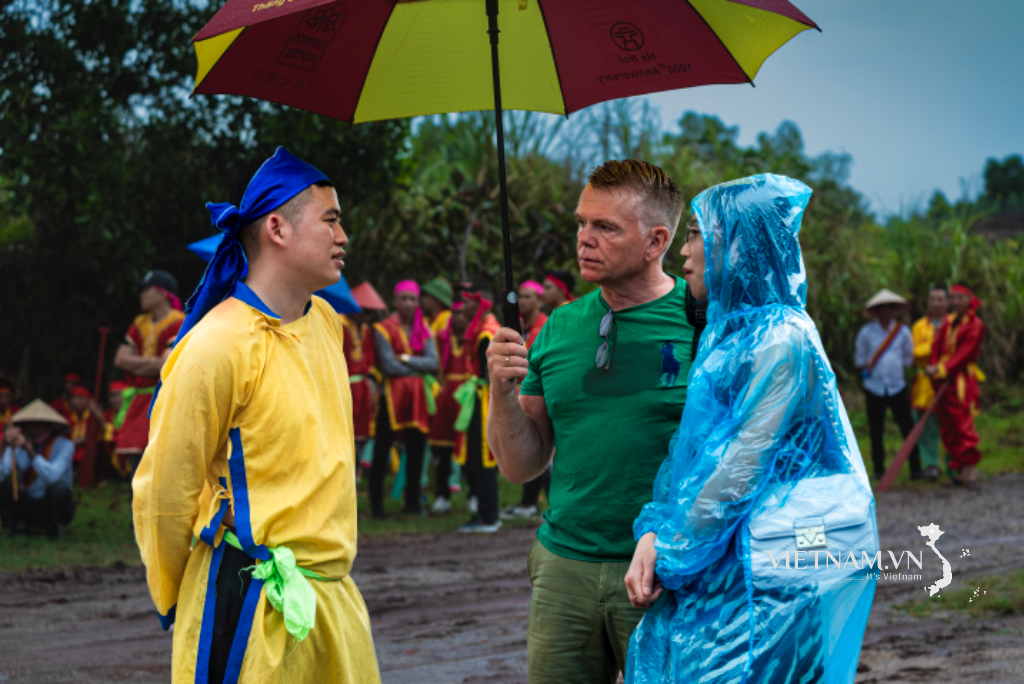

Comment (0)